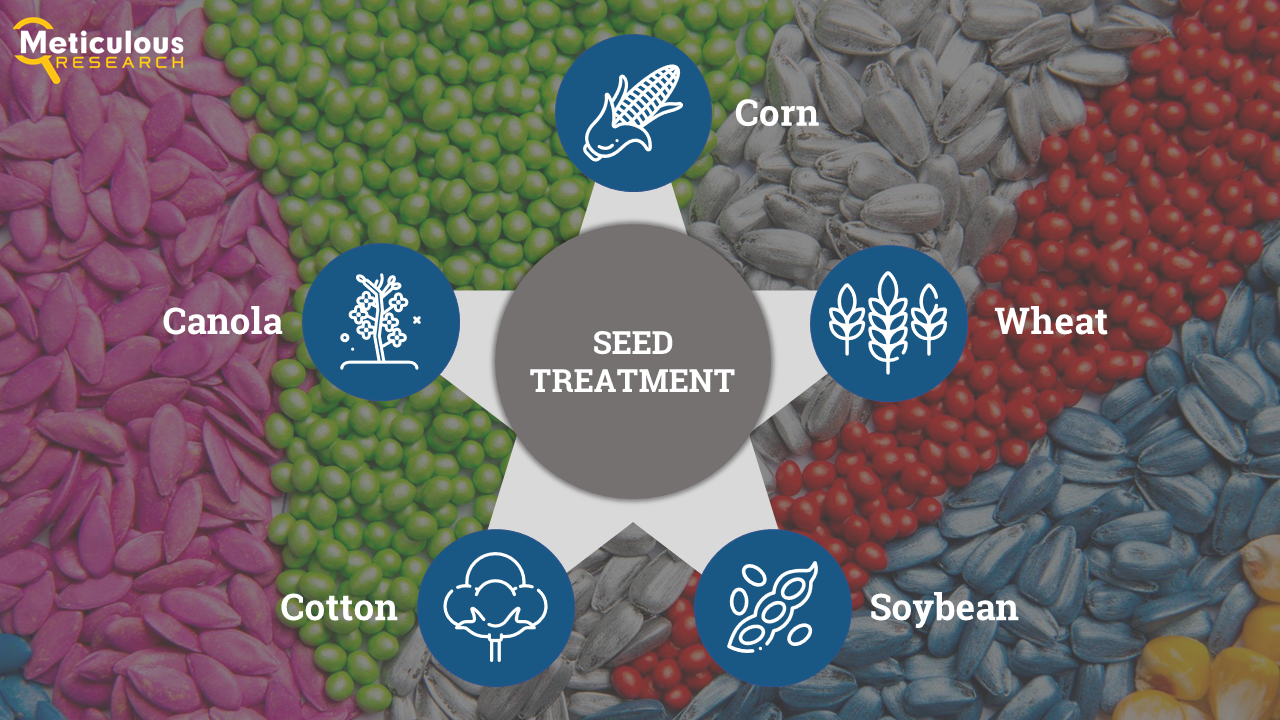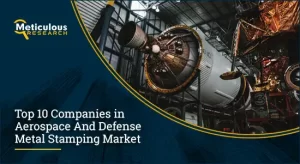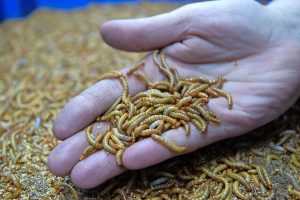
The Seed Treatment Market, valued at $6.57 billion in 2023, is projected to reach $7.2 billion by 2024 and further expand to $14.36 billion by 2031, with a 10.4% compound annual growth rate (CAGR) throughout the 2024-2031 period.
Arable land serves as the cornerstone of global agricultural production, providing the foundation for the world’s food supply. However, significant changes in farming practices over the years have led to the overutilization of land resources. This, combined with growing food demand, has resulted in widespread land exploitation, causing both the quality and availability of arable land to deteriorate, which poses a significant risk to global agriculture and food security.
Download Sample Report Here: https://www.meticulousresearch.com/download-sample-report/cp_id=5075
The Extent of Land Degradation
Land degradation has emerged as a critical global issue. According to the United Nations’ Food and Agriculture Organization (FAO) report, the Global Land Assessment of Degradation, approximately two billion hectares of land worldwide have been degraded since the 1950s. This degradation affects nearly 25% of the world’s total land area. Without intervention, the situation is expected to worsen, leading to catastrophic impacts on the environment and agricultural systems.
Land degradation is characterized by a reduction in the land’s ability to provide essential ecosystem services like food production, water filtration, and carbon sequestration. Key contributors to this degradation include deforestation, overgrazing, unsustainable agricultural practices, and urbanization. The degradation of land also releases harmful greenhouse gases, such as soil carbon and nitrous oxide, into the atmosphere, which accelerates climate change and further exacerbates environmental challenges.
Scientists have warned that continuing current agricultural practices could result in the loss of up to 24 billion tons of fertile soil annually. This loss endangers the ability of land to support agriculture and the sustainability of ecosystems worldwide. If the trend continues, it is estimated that 95% of the planet’s land areas could be degraded by 2050, threatening global food security and increasing the difficulty of feeding a rapidly growing global population.
Check complete table of contents with list of tables and figures: https://www.meticulousresearch.com/product/seed-treatment-market-5075
Regional Impact: Africa, Latin America, and India
Although land degradation is a global issue, certain regions, such as Africa, Latin America, and India, are more severely impacted. In Africa, agricultural land is rapidly being lost due to deforestation, desertification, and unsustainable farming methods. Similarly, in Latin America, industrial agricultural expansion and deforestation have resulted in significant soil erosion and fertility loss, jeopardizing food production and putting millions of people at risk of food insecurity.
India, another agriculture-dependent nation, has also witnessed a decline in arable land. The Indian Agriculture Ministry reports that up to 790,000 hectares of cultivable land have been lost in 20 states over the past 4-5 years, primarily due to the conversion of agricultural land for non-agricultural uses such as urban development and construction. The shrinking availability of fertile land in India presents a significant challenge for food production.
Rising Food Demand and Agricultural Struggles
The global challenge of land degradation is compounded by the increasing demand for food. The World Bank projects that the world’s population will reach 9.8 billion by 2050, a 40% increase from current levels. This population surge will significantly raise food demand, intensifying pressure on diminishing arable land resources.
As the global population expands, the need to increase food production becomes more urgent. However, declining arable land creates a major hurdle to this goal. Farmers will need to adopt more efficient agricultural practices, both conventional and non-conventional, to maximize crop yields without further harming the environment. Advanced crop protection tools, such as seed treatment, will be essential to this effort.
Quick Buy: https://www.meticulousresearch.com/Checkout/38214495
The Role of Seed Treatment in Combating Land Degradation
Seed treatment offers a promising solution to the dual challenges of land degradation and growing food demand. Seed treatment involves applying protective agents to seeds before planting to safeguard them from pests, diseases, and environmental stress during early growth. This practice enhances crop yield and quality by protecting crops at the most vulnerable stages of development.
Compared to traditional crop protection methods, which often require chemical applications over entire fields, seed treatment targets the seed directly, reducing the need for widespread chemical use. This approach minimizes soil depletion, lowers the risk of harmful chemical exposure to humans and animals, and promotes sustainable farming practices. By protecting crops early on, seed treatment helps farmers optimize their limited land resources and maximize productivity.
As arable land continues to decline, the precision and efficiency offered by seed treatment are becoming increasingly critical for modern agriculture. The ability to safeguard crops while using fewer resources ensures that each hectare of land is utilized to its fullest potential.
A Growing Seed Treatment Market
The growing global food demand, coupled with the challenges posed by land degradation, is fueling significant growth in the seed treatment market. Farmers are turning to seed treatment products to protect their crops more effectively and maximize yields.
According to Meticulous Research®, the global seed treatment market is expected to grow at a compound annual growth rate (CAGR) of 9.9% over the next seven years. By 2029, the market is forecasted to reach $11.68 billion, up from $6.57 billion in 2023. This robust growth underscores the increasing importance of seed treatment in addressing modern agricultural challenges.
Technological advancements are further driving the expansion of the seed treatment market. New seed treatment products are being developed to offer more targeted and effective protection against a wide range of pests and diseases. Innovations in seed coating technologies are also enhancing the delivery of these treatments, ensuring optimal seed protection with minimal environmental impact.
Seed Treatment Market Report Summary:
| Particular | Details |
| Number of Pages | ~415 |
| Format | |
| Forecast Period | 2024–2031 |
| Base Year | 2023 |
| CAGR (Value) | 10.4% |
| Estimated Market Size (Value) | $14.36 Billion by 2031 |
| Estimated Market Size (Volume) | NA |
| Segments Covered | By Type
By Form
By Function
By Application Technique
By Crop Type
|
| Countries Covered | North America (U.S., Canada), Europe (France, Germany, Italy, Spain, U.K., and Rest of Europe), East Asia (China, Japan, South Korea, and Rest of East Asia), South & Southeast Asia (India, Indonesia, and Rest of South & Southeast Asia), Australasia, Latin America (Brazil, Argentina, Mexico, Chile and Rest of Latin America), and Middle East & Africa |
| Key Companies | Bayer AG (Germany), Syngenta AG (Switzerland) (a part of China National Chemical Corporation/ChemChina), BASF SE (Germany), Corteva Inc. (U.S.), UPL Limited (India), Nufarm Limited (Australia), FMC Corporation (U.S.), Tagros Chemicals India Ltd. (India), Germains Seed Technology (U.K.) (Part of Associated British Foods Plc), Verdesian Life Sciences, LLC (U.S.), Novozymes A/S (Denmark), Valent BioSciences LLC (U.S.), Croda International Plc (U.K.), and Precision Laboratories, LLC (U.S.) |
About Meticulous Research®
Meticulous Research® is a leading provider of comprehensive market intelligence, offering actionable insights and analysis across various industries. Our reports empower businesses to make informed decisions, drive growth, and remain competitive in a rapidly evolving marketplace.
Contact Us:
Meticulous Market Research Pvt. Ltd.
1267 Willis St, Ste 200 Redding,
California, 96001, U.S.
USA: +1-646-781-8004
Europe : +44-203-868-8738
APAC: +91 744-7780008
Email- sales@meticulousresearch.com
Visit Our Website: https://www.meticulousresearch.com/
Connect with us on LinkedIn- https://www.linkedin.com/company/meticulous-research






